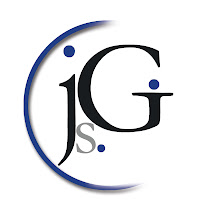We are moving into a traditionally slow period in the Events industry – the 3rd quarter summer months. With a flurry of events to wrap up the first half of the year, June rolls into July and August, and a verifiable no-fly-zone for events is upon us. The 'best practice' is to not to run events over these two months due largely to the plethora of business professionals on vacation. Which leads to a calendar jam-packed with events to drive 3rd quarter numbers.
Although I don’t have a hard set of number to substantiate this, I’ve long thought the industry is doing itself an injustice by at least not testing the running of events over these two months. To keep with the summer metaphor, it’s a huge pool (of time) nobody is dipping their toe in.
My thinking goes along three lines:
The vacation argument is legitimate. To a point. In reality, however, the entire world does not go on vacation for two months. Employees coordinate schedules, get coverage, and work gets done. In sort, there is a sustainable universe of executives within your marketing universe that are not going to be out of the office the particular week you plan an event in July and August.
Secondly – June and September are, of course, huge months for holding events – primarily due to the dead zone of summer. Which means competition is fierce for attendees and sponsors post-Labor Day. For argument’s sake, say you increase your marketable universe by 15% by holding an event in September vs. July/August. By waiting until September and gaining those additional prospects, you are competing against a slew of other events companies for share of wallet/time.
For example (and this is admittedly over-simplifying the situation) assume you have 100 executives who are planning to attend an event this year. Removing all other variables, taking the above 15% figure, you have an opportunity to attract 85 of them to your event if held in July/August. If the event is held in September, chances are good there are at least two other events with similar topic/functionality being held that same week. So while you have an unbeatable product, these 100 executives will decide between three options – and if all things are equal your chances of attracting them is 33.34%. Again, there are other variables involved, but in a pure numbers sense odds are as good if not better of attracting audience in the summer months.
Finally an intuitive question: if summer is a bad time to hold an event, what makes it a wonderful time to market these events? This is, however, what happens in a typical event promotional cycle. Outbound communications, prospect planning for 2nd half calendars, etc., happen over these months for many September and October events. For example, pending your promotional cycle, if you launch a communication channel 12 weeks before an event, that would mean launching in mid-July for a mid-October event. So, I'd have to argue, if summer is a bad time for an event, it’s also a bad time to market an event.
This is not to advocate going gung-ho into summer months, just that it is worth exploring the possibility. Obviously a ton of variables come into play – sponsor sensitivities, hotel and logistical questions. This is just to argue that it’s certainly time to test or explore expanding the schedule.
As always, let us know what you think.
Good luck!
John
http://www.johnsgibb.net
Tuesday, May 26, 2009
Subscribe to:
Post Comments (Atom)




No comments:
Post a Comment